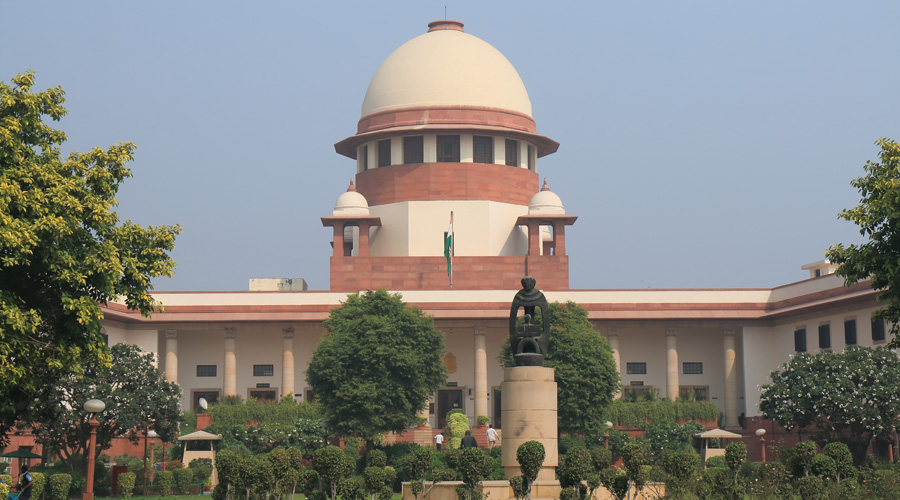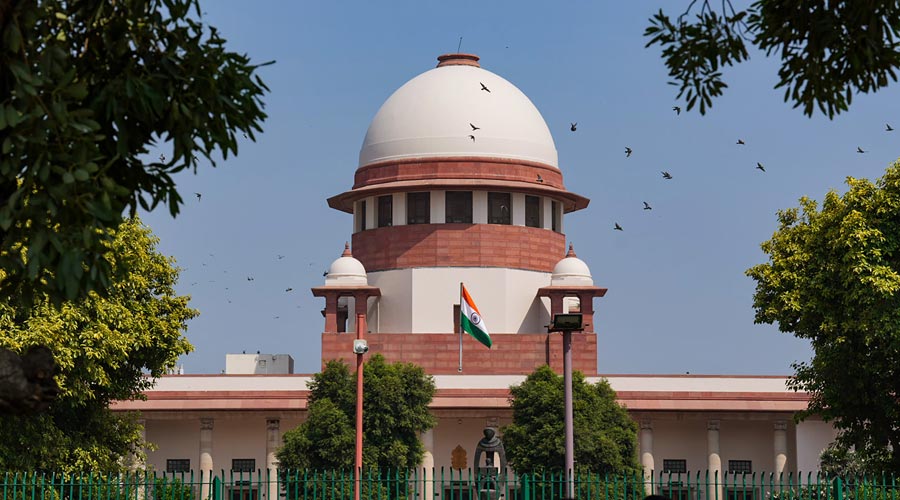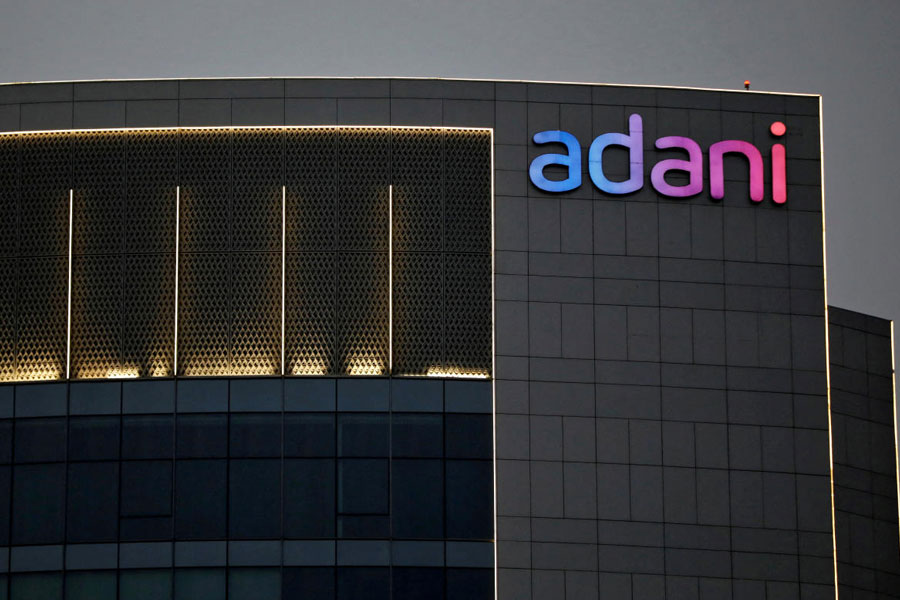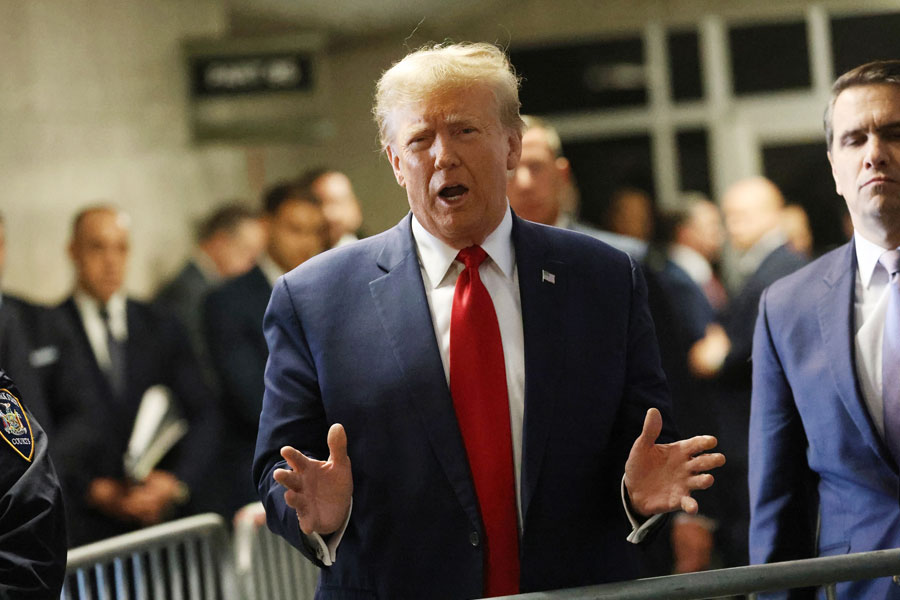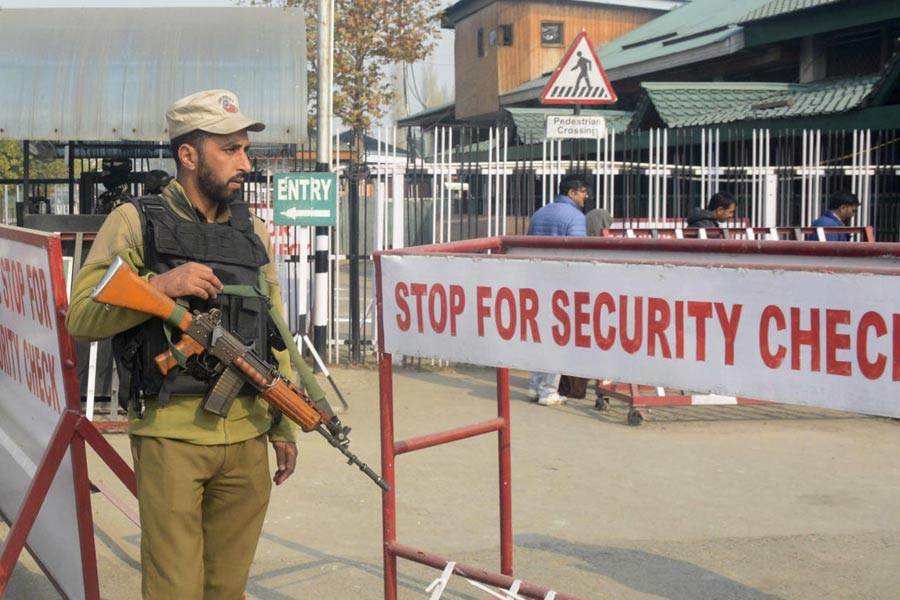The Supreme Court on Monday expressed anguish over the delay by the Centre in clearing the names recommended by the Collegium for appointment as judges in the higher judiciary, saying it "effectively frustrates" the method of appointment.
A bench of Justices S K Kaul and A S Oka said a three-judge bench of the apex court had laid down the timelines within which the appointment process had to be completed. Those timelines, it said, have to be adhered to.
Justice Kaul observed it appeared the government is unhappy with the fact that the National Judicial Appointments Commission (NJAC) Act did not pass the muster, but that cannot be a reason to not comply with the law of the land.
The apex court had in its 2015 verdict struck down the NJAC Act and the Constitution (99th Amendment) Act, 2014, leading to the revival of the Collegium system of existing judges appointing judges to constitutional courts.
During the hearing on Monday, the apex court told Attorney General R Venkataramani the ground reality is that the names recommended, including those reiterated by the apex court Collegium, are not being cleared by the government.
"How does the system work?" the bench asked, adding, "Our anguish we have already expressed."
"It appears to me, I would say, unhappiness of the Government of the fact that NJAC does not pass the muster," Justice Kaul observed.
Justice Kaul said sometimes laws pass the muster and sometimes they don't.
"That cannot be a reason not to comply with the law of the land," he said.
The top court was hearing a plea alleging "wilful disobedience" of the time frame laid down by the apex court in its April 20 order last year to facilitate timely appointment.
The bench referred to the process undertaken for appointing judges in the apex court and the high courts.
"Once the Collegium reiterates a name, it is end of the chapter," it said, adding, there cannot be a situation where recommendations are being made and the government keeps sitting on them as this frustrates the system.
It said some names are pending with the government for a year and half.
"You are effectively frustrating the method of appointment," the bench observed, adding some lawyers are withdrawing their consent given for elevation to the bench due to the delay in the appointment process.
It said the government sometimes picks just one name from among those recommended by the Collegium and this "completely disturbs" the seniority.
The apex court said the Collegium recommends the names keeping also in mind the aspect of seniority.
The Attorney General said after the apex court passed an order in the matter on November 11, he had some discussion with a secretary-level officer and that he will come back to the court.
Senior advocate Vikas Singh, who had assisted the apex court in the matter earlier, referred to media reports on a statement by Union Law Minister Kiren Rijiju on the issue of appointments.
"How many statements we take note of?" the bench asked.
During the hearing, when Singh again referred to media reports, Justice Kaul said, "I ignore all press reports."
"When somebody high enough says let them do it themselves, we will do it ourselves," the bench said.
"It is crossing the rubicon by keeping the names pending like this," the court observed.
The bench said both the Attorney General and Solicitor General Tushar Mehta are appearing in the matter.
"So the double barrel gun should work," the bench said in a lighter vein.
It said the Collegium has recommended the names of chief justices for some high courts and these recommendations are lying in abeyance.
"For the last two months, the whole thing has come to a standstill," it said, adding, "Please resolve it."
"Don't make us take a decision on this in the judicial side," the bench said.
The apex court, which posted the matter for hearing on December 8, said it expects both the Attorney General and Solicitor General to play a role to advise the government so that law of the land is followed.
"Till the law stands, it has to be followed," it said.
On November 11, the apex court had expressed displeasure over the delay by the Centre in clearing the names recommended for appointment as judges and said keeping them pending is "something not acceptable".
It had issued notice to the Secretary (Justice) of the Union Law Ministry and Additional Secretary (Administration and Appointment) seeking their response to the plea.
The petition filed by the Advocates' Association Bengaluru, through lawyer Pai Amit, has raised the issue of "extraordinary delays" in the appointment of judges to the high courts as well as the segregation of the names, which is "detrimental to the cherished principle of the independence of the judiciary".
It has referred to 11 names which were recommended and later reiterated.
The plea has said the failure to implement the binding decision of the Collegium headed by the Chief Justice of India, even upon reiteration, would amount to a wilful disobedience of the orders of the apex court.
In its order in April last year, the apex court had said the Centre should appoint judges within three-four weeks if the Collegium reiterates its recommendations unanimously.
Coming out with timelines to facilitate the process, it had said the Centre should proceed to make appointment immediately after the apex court Collegium recommends the names and, if the government has any reservations on the "suitability or in public interest", it may send them back to the Collegium with the specific reasons for reservation recorded.
The Supreme Court's comments seem to have been made in the light of recent remarks by Union Law Minister Kiren Rijiju on the collegium system of appointing judges.
Rijiju, who has been a vocal critic of the system, had recently launched a fresh attack on the current appointment mechanism, saying the collegium system was "alien" to the Constitution, reports ndtv.com.
The Supreme Court in its wisdom, through a court ruling, created the collegium, he had said, noting that before 1991 all judges were appointed by the government, the news website added.
Speaking at the Times Now Summit, the Law Minister had said the Constitution of India was a "religious document" for everyone, especially the government.
"Anything which is alien to the Constitution merely because of the decision taken by the courts or some judges, how do you expect that the decision will be backed by the country," he had asked, according to ndtv.com.

